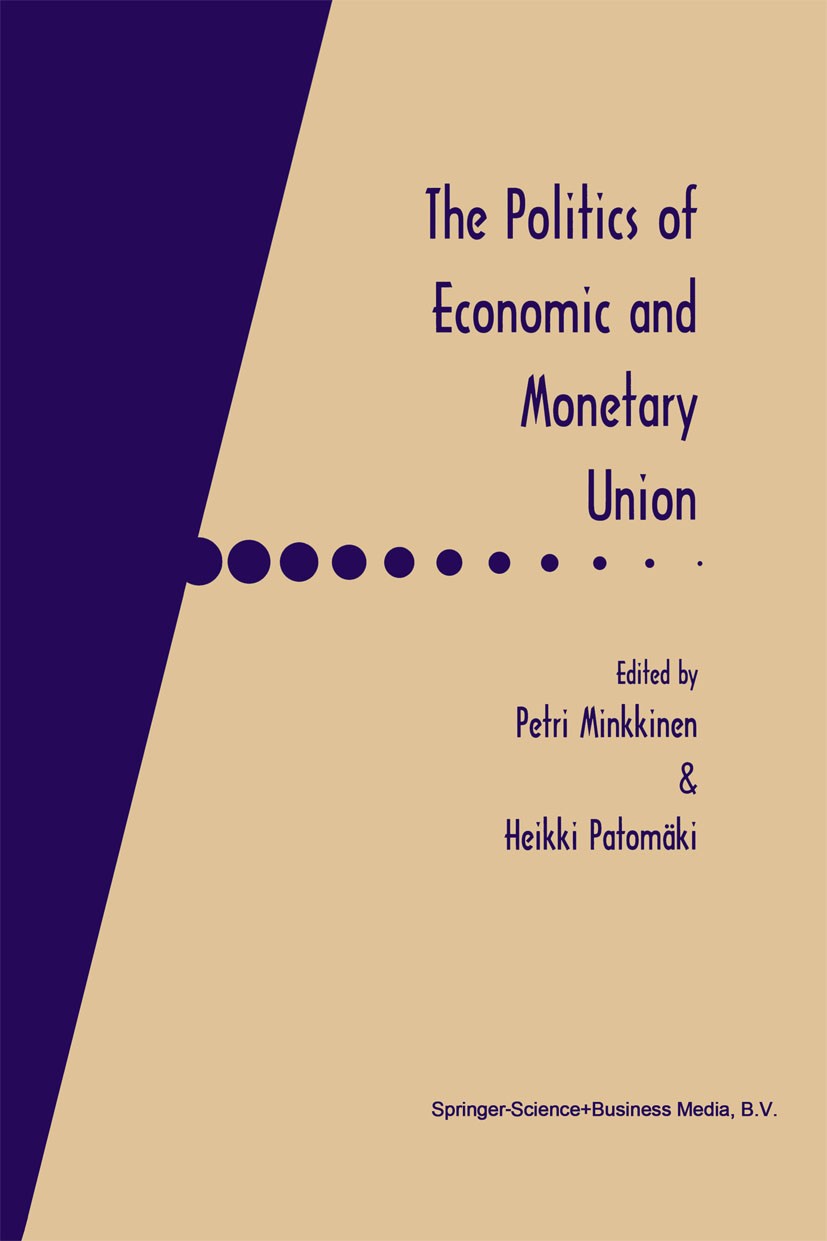| 书目名称 | The Politics of Economic and Monetary Union | | 编辑 | Petri Minkkinen,Heikki Patomäki | | 视频video | http://file.papertrans.cn/918/917076/917076.mp4 | | 图书封面 |  | | 描述 | If the plans concerning EMU will be realised, by 2002 nationalcurrencies will be replaced by the Euro and national central bankswill be partially replaced by the European Central Bank. The Politicsof Economic and Monetary Union starts with the argument that EMU ismore a political than an economic project. It develops this theme byaddressing five different questions. .First, precisely what is the general role of EMU in the globalisingpolitical economy? Second, how EMU will change the power relations andthe relationship between `political‘ and `economic‘? Third, whateffects will EMU have on generally accepted values - includingfor example efficiency, self-determination, and democracy? Fourth, howdoes the EMU-related politics of symbols - including money- take part in constructing political identities? And last, butcertainly not least, what effects EMU will have on the social andpolitical dimension of the Union and thus also on its legitimacy?.The politics of EMU includes many dimensions. The book tries toexplain the hegemony of the neoliberal and German vision of Europe inthe context of recent development in the global political economy. Itassesses the consequences of this hegemony a | | 出版日期 | Book 1997 | | 关键词 | Euro; European Central Bank; European Union; European Union (EU); development; economic integration; monet | | 版次 | 1 | | doi | https://doi.org/10.1007/978-1-4615-6085-2 | | isbn_softcover | 978-1-4613-7788-7 | | isbn_ebook | 978-1-4615-6085-2 | | copyright | Springer Science+Business Media Dordrecht 1997 |
The information of publication is updating

|
|
 |Archiver|手机版|小黑屋|
派博传思国际
( 京公网安备110108008328)
GMT+8, 2026-2-9 19:31
|Archiver|手机版|小黑屋|
派博传思国际
( 京公网安备110108008328)
GMT+8, 2026-2-9 19:31


